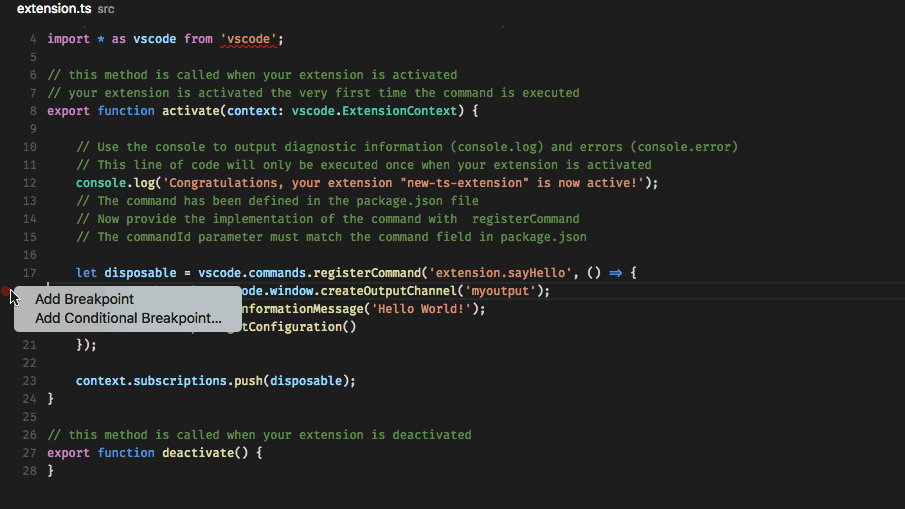

py extension found in the opened workspace. Following triggers for extension activation:.


A command My Tool: Restart Server (command ID: mytool.restart).Assume was replaced with mytool, and with My Tool: Features of the templateĪfter creating your extension via the template, it will include the following extension contributions. The README has the most up-to-date instructions and also goes into details on how to customize the extension's package.json placeholders (, , etc.). There you will learn how to use the template to create your repository and how to install the necessary tools (for example, the nox task runner) and optional dependencies (testing support). To get started, follow the instructions in the template README. You should know how to create and work with Python virtual environments. npm >= 8.3.0 ( npm is installed with node, check npm version, use npm install -g to update).The extension template has examples for a few settings and you can also look at extensions developed by our team for some of the popular tools. If you need to add new settings to support your tool, you will have to work with a bit of TypeScript. The extension template comes with a few settings built-in that can be used by your tool. The TypeScript part handles working with VS Code and its UI. pygls currently works on the version 3.16 of LSP. You will be integrating your tool with the extension part using the Language Server Protocol. You will mostly be working on the Python part of the code when using this template. The extension part is written in TypeScript, and language server part is written in Python over the pygls (Python language server) library. The extension template has two parts, the extension part and language server part. Note: If you are new to VS Code extension authoring, you may want to read the Your First Extension tutorial first and try creating a simple Hello World extension. The template will give you the basic building blocks you need to build an extension that integrates your tool into VS Code. It could be a linter, formatter, or code analysis, or all of those together. The Python extension template helps get you started building a Visual Studio Code extension for your favorite Python tool.


 0 kommentar(er)
0 kommentar(er)
